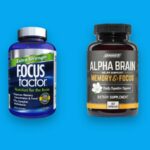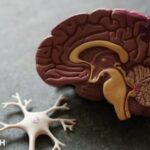
Table of Contents
Introduction
In the contemporary and demanding era that we live in, it is not uncommon to experience a sense of being inundated, perturbed, and fatigued. Whether you are grappling with the pressures of work, familial obligations, or medical concerns, stress can have a deleterious impact on both your psychological and physical well-being.
While there are a myriad of approaches to managing stress, ranging from engaging in physical activities to practicing mindfulness and attending therapy, there are those who opt for natural remedies such as Rhodiola Rosea, an adaptogenic herb with a centuries-long history of use in traditional medicine.
Rhodiola Rosea is purported to facilitate the body’s adaptation to stressors, enhance cognitive abilities, and ameliorate mood. In this discourse, we will explore the nature of Rhodiola Rosea, the mechanisms that underpin its operation, and the possible advantages and drawbacks of its employment.
What is Rhodiola Rosea?
The Rhodiola Rosea is an herbaceous plant that thrives in frigid climates, such as the Arctic and the mountainous regions of Europe and Asia. This plant has an extensive background of utilization in traditional medicine, particularly in Russia and Scandinavia, where it has been employed to heighten physical stamina, alleviate fatigue, and augment mood. As an adaptogenic herb, Rhodiola Rosea fosters the body’s ability to manage stressors and engenders homeostasis or equilibrium within the body.
How does Rhodiola Rosea work?
Rhodiola Rosea is composed of a collection of constituents referred to as rosavins and salidroside, which are purported to be accountable for its therapeutic properties.
These compounds operate by adjusting the concentrations of specific neurotransmitters, including dopamine, serotonin, and norepinephrine, which are crucial in regulating mood, motivation, and cognitive performance.
Additionally, Rhodiola Rosea boosts the production of adenosine triphosphate (ATP), the primary energy currency of the body, and elevates the activity of specific enzymes that participate in energy metabolism.
What are the benefits of Rhodiola Rosea?
Reduces stress and anxiety: Rhodiola Rosea has been shown to reduce the symptoms of stress and anxiety, including irritability, fatigue, and poor concentration. It works by reducing the levels of cortisol, the stress hormone, and increasing the levels of beta-endorphins, the “feel-good” chemicals in the brain.
Improves mood and motivation: Rhodiola Rosea has been shown to improve mood and motivation in people with mild to moderate depression. It works by increasing the levels of serotonin and dopamine, two neurotransmitters that are involved in mood regulation and pleasure.
Enhances cognitive function: Rhodiola Rosea has been shown to enhance cognitive function, including attention, memory, and mental processing speed. It works by increasing the levels of acetylcholine, a neurotransmitter that is important for learning and memory.
Boosts physical performance: Rhodiola Rosea has been shown to improve physical endurance and reduce fatigue in athletes and other people who engage in strenuous activities. It works by increasing the production of ATP, the energy currency of the body, and reducing the levels of lactate, a byproduct of energy metabolism that causes fatigue.
Supports immune function: Rhodiola Rosea has been shown to enhance immune function by stimulating the production of certain immune cells, including natural killer cells and T-cells.
Are there any side effects of Rhodiola Rosea?
Rhodiola Rosea is generally considered safe when taken in recommended doses. However, some people may experience mild side effects, including dry mouth, dizziness, and headache. Rhodiola Rosea may also interact with certain medications, including antidepressants and blood thinners, so it’s important to consult with your healthcare provider before taking it.
How to use Rhodiola Rosea?
Rhodiola Rosea is available in various forms, including capsules, tablets, tinctures, and teas. The recommended dosage may vary depending on the product and the individual’s needs. In general, it’s best to start with a low dose and gradually increase it over time to avoid any potential side effects. It’s also important to follow the manufacturer’s instructions and consult with your healthcare provider before taking Rhodiola Rosea, especially if you’re pregnant, breastfeeding, or have any medical conditions.
Conclusion
Throughout the ages, Rhodiola Rosea has been utilized in traditional medicine as an adaptogenic herb that helps the body cope with stress, ameliorate mood, and augment cognitive abilities. Its active compounds regulate neurotransmitter levels and provoke energy production, which could explain its health benefits.
Research has shown that Rhodiola Rosea can diminish stress and anxiety, elevate mood and motivation, enhance cognitive aptitude, improve physical performance, and fortify immune function. Although it is typically deemed safe when consumed in appropriate doses, it may interact with certain medications and may not be suitable for all individuals. If you are contemplating using Rhodiola Rosea, it is critical to consult with your healthcare provider and adhere to the manufacturer’s guidelines.
FAQs
Is Rhodiola Rosea safe for everyone?
Rhodiola Rosea is generally considered safe when taken in recommended doses. However, it may interact with certain medications and may not be suitable for people with certain medical conditions. It’s important to consult with your healthcare provider before taking Rhodiola Rosea.
How long does it take to see the effects of Rhodiola Rosea?
The effects of Rhodiola Rosea may vary depending on the individual and the dosage. Some people may experience the benefits within a few days, while others may need several weeks. It’s important to be patient and consistent with the use of Rhodiola Rosea to see the best results.








